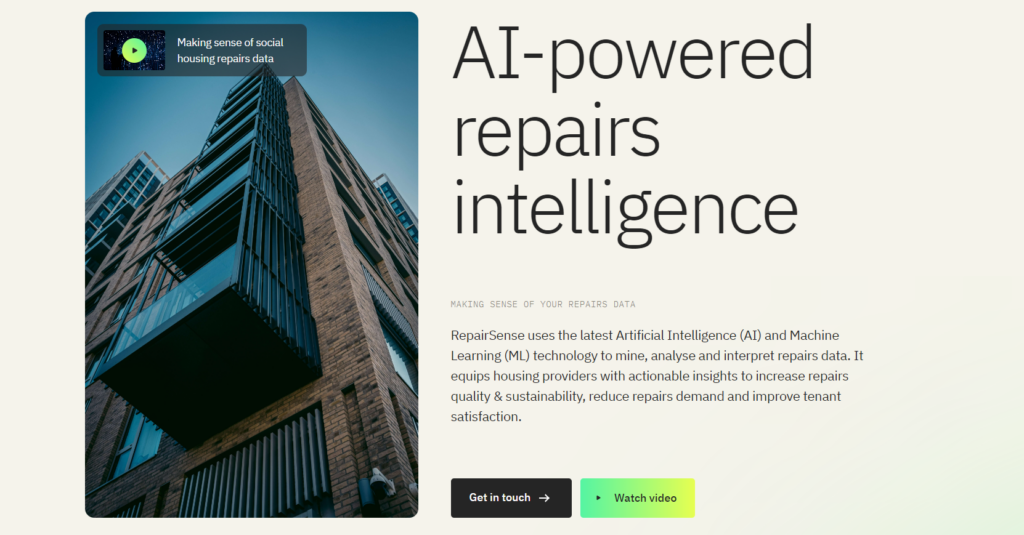Navigating the Ethical Landscape of AI in Social Housing
Artificial Intelligence (AI) is undoubtedly one of the most discussed and debated topics in the modern world. Whether it’s the latest headlines or everyday conversations, AI is at the forefront of our minds. For the social housing sector, the ethical implications of AI are now more relevant than ever. In Mobysoft’s recent webinar, ‘Mobysoft Monthly: Ethical Considerations of AI within Social Housing’ our in-house experts discussed some of the most pertinent points around AI and effective approaches that social housing providers can take when navigating the ethical implications of this new and ever-changing technology driven landscape . This blog post delves into the key insights shared during the session.
If you’d like to learn more about introducing AI into a social housing context then you can download our comprehensive Introducing Artificial Intelligence (AI) into Your Organisation guide.
AI and the Social Housing Sector
Jon Brownbill, Chief Customer Officer at Mobysoft, opened the recently held webinar session by highlighting the ubiquity of AI in our lives today, emphasising that AI brings not only potential benefits but also ethical challenges relating in particular to profiling and behavioural insights.
“Providers are grappling with these issues, and staying informed about current and future legislation is of paramount importance” he said. “Not all AI technologies suitable for other sectors are appropriate for social housing – the sector is still in the early stages of its AI journey, and it’s our aim provide valuable education on ethics and AI for social housing providers”.

Ethical Concerns of AI in Social Housing
Our discussion and the insight gained from the session’s audience comprising UK housing professionals, unearthed three primary ethical concerns associated with AI in the social housing sector: Data Security and Privacy; Bias and Fairness; Transparency and Accountability.
Data Security and Privacy
One of the critical aspects of using AI in social housing is data security and privacy. It’s imperative to ensure that data is securely handled, preventing misuse and unauthorised access. With AI solutions heavily relying on data, safeguarding it is of utmost importance.
Bias and Fairness
AI models must be developed with care to avoid introducing biases that could lead to unfair outcomes. High emphasis should be placed need to avoid using data that might skew results in one direction, such as age, location, or gender.
Transparency and Accountability
Transparent and explainable AI results are crucial. AI should not be perceived as a “black box” where its inner workings are a mystery. Transparency and accountability are key in building trust with stakeholders.

Adhering to Ethical Guidelines and Frameworks
In the UK and beyond, there are various ethical guidelines and frameworks concerning AI. These include guidance from the UK government, the Alan Turing Institute, the Information Commissioner’s Office (ICO), the Center of Data Ethics and Innovation, the British Standards Institute, and the Royal Society’s AI ethics frameworks. While there is no specific legislation around AI in the UK, compliance with GDPR and adherence to ethical AI principles should be integral to an organisation’s culture.
It is also worth considering that a proposed new EU AI directive could potentially instigate the lowering of evidentiary hurdles for ‘victims of AI-related products or services’, making it easier for claims to be established against ‘AI operators’. With this in mind, it’s paramount that organisations are able to explain and justify decisions that could affect both staff and customers:
AI in Practice & The Role of AI Councils
To showcase practical applications of AI and the ethical considerations needed to be taken into account, Mobysoft presents the examples of our in-house AI Council and Automated Arrears Prevention Module. In establishing an AI Council, we aim to guide the introduction of AI applications within the organisation and educate our teams. This council comprises members from various areas of the business and aligns AI efforts with ethical principles. It’s crucial that organisations have a culture open to change and the adoption of AI solutions.
As a use case, we point towards our Automated Arrears Prevention Module product, which uses AI to predict which tenants are likely to fall into arrears. With an 85% accuracy rate, proactive campaigns are then launched to encourage tenants to take action before arrears occur. The benefits include preventing tenants from falling into arrears, reducing overall arrears balances, and enhancing tenant well-being.
In applying AI to this solution, Mobysoft ensures the responsible use of data. Information is anonymised to prevent any identifiable data from being accessed. The organisation refrains from using external data sources that might introduce bias, and the AI model delivers explainable results. The aim is to enhance transparency and accountability.

Closing Thoughts
AI’s role in social housing is evolving rapidly, and the ethical considerations around its use are of increasing importance. As our experts have explored here, it’s evident that staying informed, following ethical guidelines, and establishing a culture of ethical AI use are vital. The development of AI councils by social housing providers demonstrates the commitment to ensuring ethical principles drive AI policies within such organisations.
Social landlords will benefit greatly from implementing guidelines and remaining vigilant about ethical considerations and legal compliance. Doing so will allow them to harness the potential of AI while mitigating risks during the transition into an AI-augmented future, where technology and human expertise work hand in hand to meet the sector’s evolving needs.
If you found this article interesting then you might want to check out our forthcoming Rise of The Machines: How Supervised Machine Learning Will Solve the Damp & Mould Crisis webinar on Wednesday 15 November. Head over to our dedicated event page to register your interest today.
- Five Pillars of a Successful Data Strategy - July 16, 2024
- Five Things Labour Can Do to Solve the Social Housing Crisis - July 9, 2024
- This Month In Social Housing: April 2024 - May 1, 2024